Photos
-
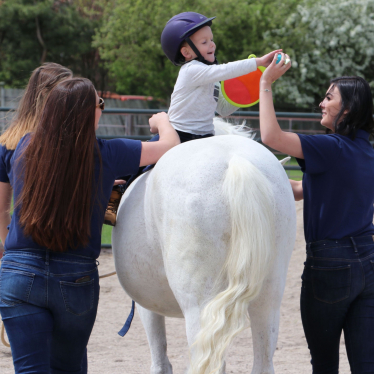
- Strides started with a parent, an equestrian, a mental health professional, an occupational therapist, and one horse named Solomon. From there, the vision grew. Our founders understand the importance of providing meaningful and research supported therapies and treatment tools and therefore have created an organization that is able to offer a variety of tools/strategies including hippotherapy, nature based environments, sensory friendly spaces and collaborative treatment teams.
-
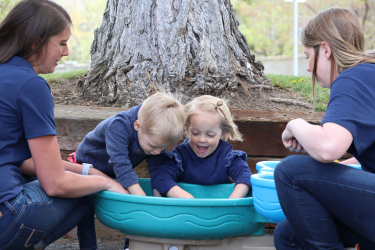
- Strides is located at The Ranch at Pole Canyon, a ten acre facility boasting a fully accessible 90’x150’ indoor arena, sensory trail accessible on foot and horseback, child-centered treatment spaces, amazing nature views and wonderful outdoor space. Located in Eagle Mountain, Strides is easily accessible from Utah County, Tooele County, and the Salt Lake Valley.
-
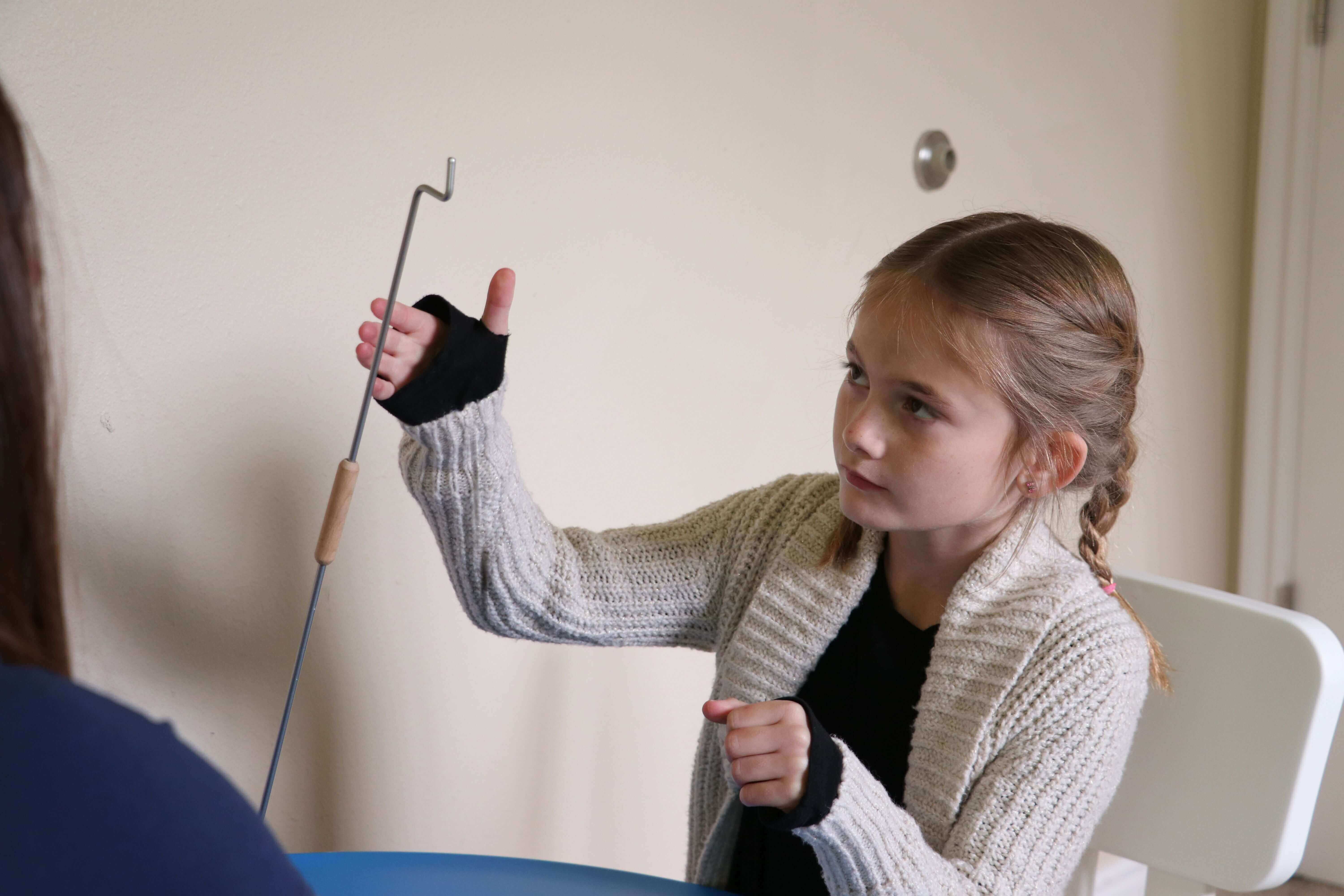
- We provide physical therapy, occupational therapy, speech therapy, psychotherapy, and adaptive riding services to children birth- 21 years of age with a variety of disabilities and/or needs.
-
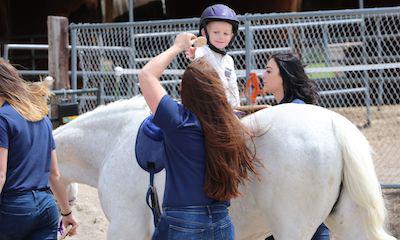
- Hippotherapy means “treatment with the use of the horse” from the Greek word, “hippos,” meaning “horse.” It is a treatment strategy that utilizes evidence based practice and clinical reasoning in the purposeful manipulation of equine movement as part of a therapeutic intervention treatment plan that was developed by a licensed and trained occupational, physical and/or speech therapist to promote functional outcomes related to each child’s specific needs. It is not its own therapy or treatment modality. More simply, hippotherapy is done as part of an OT, PT, or ST session, and the movement of the horse is used as a tool, the same way a medicine ball or weight is used. The therapy team consists of a licensed therapist (OT, PT, or SLP) who has completed training under the American Hippotherapy Association, a trained horse handler, trained volunteers, and an equine partner chosen to fit the needs of the child.
-
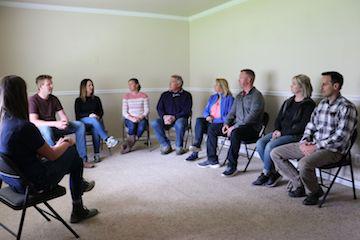
- Living with a disability can be difficult, for both the child and for the family support system. Strides offers individual therapy sessions, family therapy sessions, and parent and family member support group sessions to provide support for dealing with these difficulties. Our individual and family sessions address any concerns or difficulties your child and your family may be experiencing. Our group sessions are designed not only to help you process the experience of having a loved one with a disability, but also to create a community that members can turn to for support, both at and away from Strides.
-

- The pediatric occupational therapist (OT), through the use of purposeful activities and play, assist children in reaching their optimal level of independence in all areas of their daily living. Occupations for a child may include: play, social interaction, self-care (feeding, dressing, bathing etc), and learning and engaging with their environment. The OT strives to create a “just right challenge” to engage the child in new skill development and/or to strengthen underlying skill sets. They work to ensure the child is functioning at their highest potential while maintaining a child centered, engaging and purposeful environment.
-

- The pediatric physical therapist (PT) focuses on the child’s ability for independence and participation in daily activities within their environments (home, school, playground, etc.) related to motor and coordination skills. They often work with children who have injuries or conditions that impact their motor function and control. In addition to motor function, they can also address orthopedic and neurological developmental concerns as well as pain management.
-

- Adaptive riding (often referred to as therapeutic riding) is a horsemanship program that is adapted for a rider with a disability or challenge. The sessions are conducted under the supervision of an experienced instructor who has obtained specialized training and certification. They are trained to adapt the environment, equipment, teaching style/interactions, and physical demands in order to allow the participant to develop riding skills while participating in an activity they enjoy, and experiencing all of the benefits that riding and a relationship with a horse have to offer! At Strides, our adaptive riding is run but a PATH certified therapeutic riding instructor who is also a state and nationally licensed recreational therapist, brining in the added benefits of RT in addition to the benefits of adaptive riding.
-

- The pediatric speech-language pathologist (SLP) works with children who have deficits in the areas of communication, language skills, oral motor control, feeding/swallowing issues, or hearing related concerns. They can address the need for specialized communication devices, which can range from simple (such as word cards) all the way to voice generated communication devices.
-

- The pediatric recreational therapist (RT) focuses on developing greater independence in your child’s skills, knowledge, and abilities while seeking greater health and wellness. The door is wide open to the recreational and activity possibilities utilized to support in your child’s goal attainment, whether in group or individualized sessions. The RT focuses on the individual using recreational and activity centered interventions as tools to improve their well-being and overall quality of life. Interventions are chosen based on the individual’s strengths and areas of limitation, their goals and their objectives. By incorporating recreation, activities, and your child’s own interests or hobbies into each therapy session, the goal is to achieve outcomes that can transfer to their real life.
Videos
No videos to display. Link one now!